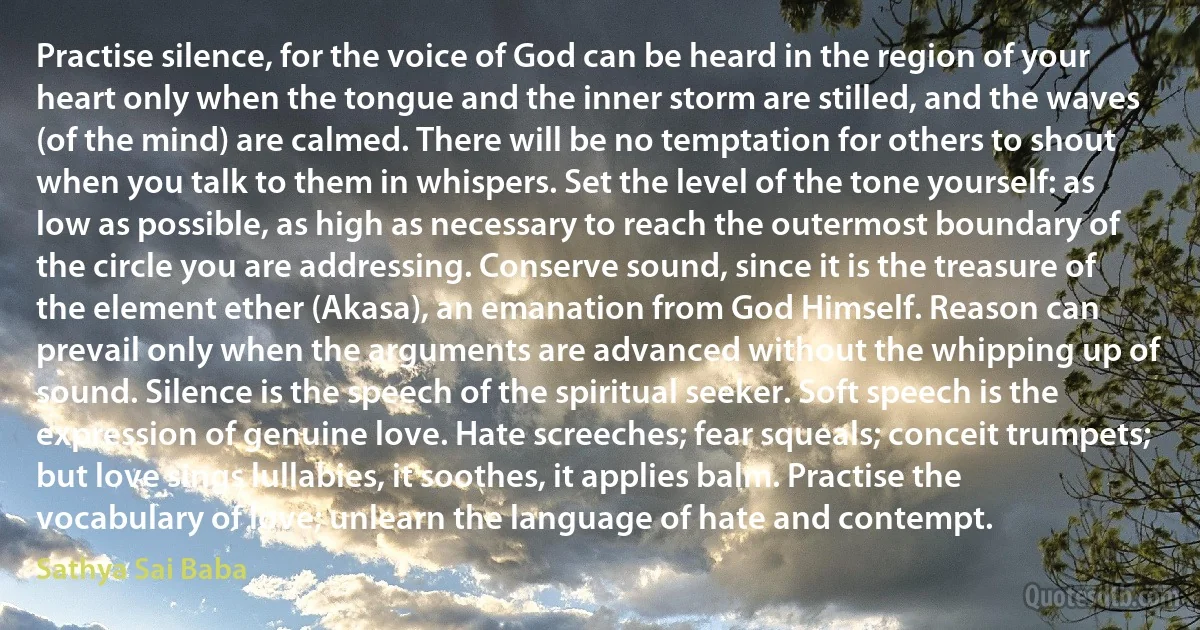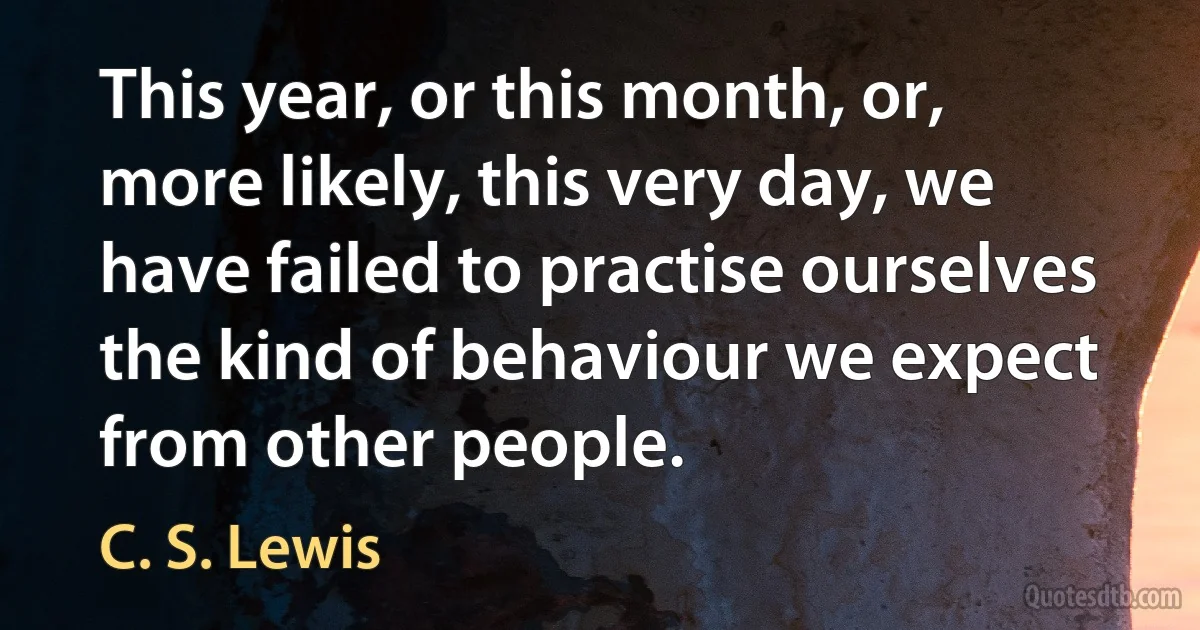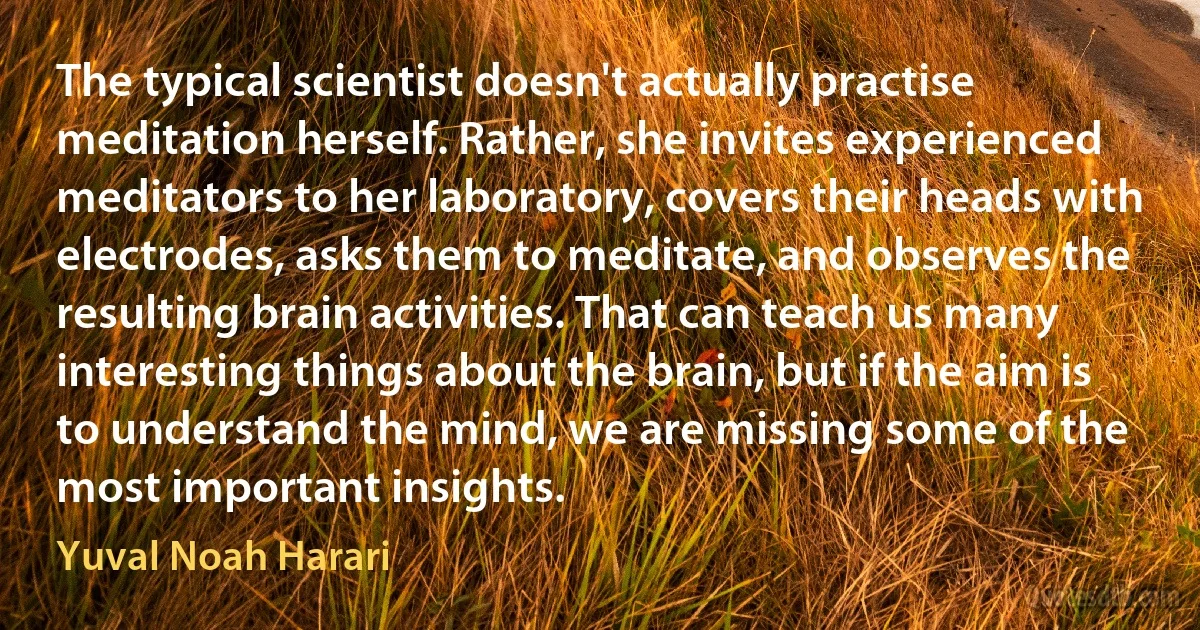Practise Quotes - page 3
Through all of history and pre-history it has been accepted that there is something wrong with the human animal. Health may be the natural condition of other species, but in humans it is sickness that is normal. To be chronically unwell is part of what it means to be human. It is no accident that every culture has its own versions of therapy. Tribal shamans and modern psychotherapists answer the same needs and practise the same trade.

John N. Gray
As for hair in the nose, it is picturesque, and with a little practise it can be made to quiver, like the antennae of one of the more intelligent and sensitive insects. Anything which gives interest to the gloomy, immobile pan of the average Canadian should be cherished and not extirpated with circular scissors.

Robertson Davies
...that the Jew, thanks to Ezekiel, is the teacher of all intolerance, of all fanaticism in faith, and of all murder for the sake of religion; that he only appealed to toleration where he felt himself oppressed, that he himself, on the other hand, never practised it nor dared to practise it, for his law forbade it as it forbids it today and will forbid it tomorrow.

Houston Stewart Chamberlain
In speaking of agricultural management, the French say, I'economie rurale, and the English, rural economy; and yet neither the one nor the other intend thereby to signify the absolute execution of agricultural operations, but only the division and circumstances or appurtenances of agriculture. In Germany, where a Latin or Greek name has lately been thought to give dignity to a science, and has, consequently, been introduced into the title of most of the scientific works, some authors have begun to term, not only the science of agriculture, but agriculture itself, the oekonomie; and the word is used exclusively in this sense by many persons. It is for this reason that those who are supposed to practise the art with the greatest skill and science, are termed oekonomen (economists); and that some of those who are employed in superintending the labourers, even though they frequently have not the least idea of the actual principles of agriculture, chose to be designated by this title.

Albrecht Thaer
The Slavs are to work for us. Insofar as we do not need them, they may die. Therefore, compulsory vaccination and German health service are superfluous. The fertility of the Slavs is undesirable. They may use contraceptives or practise abortion, the more, the better. Education is dangerous. It is enough if they can count up to one hundred. At best an education which produces useful coolies for us is admissible. Every educated person is a future enemy.

Martin Bormann
Just as when a man commits suicide ne negates the body, this rational limit of subjectivity, so when he lapses into fantastic and trascendental practice he associates himself with embodied divine and ghostly appearances, namely, he negates in practise the difference between imagination and perception.

Ludwig Andreas Feuerbach
Praise Him whose limit cannot be found.
They who practise truth and perform service shall obtain their reward.
He who knoweth divine knowledge is the learned pandit.
He who knoweth the one God in all creatures would never say 'I exist by myself '.
When the hair groweth white, it shineth without soap.
King Death's hunters follow him who is bound by the chain of mammon.
The Creator, Lord of the world, giveth sustenance to His slaves.
All the world is bound in His bonds; no other authority prevaileth.
He who hath renounced the singing of God's word, is arrogant in his language.
He who fashioned vessels made kilns in which He put them and burnt them.
The servant who performeth the Guru's work, who remaineth obedient to His commands,
Who deemeth bad and good as the same, shall in this way be absorbed in Him.
He who made the four Veds, the four mines, and the four ages
Hath been in every age a Jogi, a worldly man, or a learned pandit.

Guru Nanak Dev
Let him sensibly perceive, that the kindness he shews to others, is no ill husbandry for himself; but that it brings a return in kindness both from those that receive it, and those who look on. Make this a contest among children, who shall out-do one another in this way: and by this means, by a constant practise, children having made it easy to themselves to part with what they have, good nature may be settled in them into a habit, and they may take pleasure, and pique themselves in being kind, liberal and civil, to others.

John Locke
As the saints and prophets were often forced to practise long vigils and fastings and prayers before their ecstasies would fall upon them and their visions would appear, so Virtue in its purest and most exalted form can only be acquired by means of severe and long continued culture of the mind. Persons with feeble and untrained intellects may live according to their conscience; but the conscience itself will be defective. ... To cultivate the intellect is therefore a religious duty; and when this truth is fairly recognized by men, the religion which teaches that the intellect should be distrusted and that it should be subservient to faith, will inevitably fall.

William Winwood Reade
My favorite books are a constantly changing list, but one favorite has remained constant: the dictionary. Is the word I want to use spelled practice or practise? The dictionary knows. The dictionary also slows down my writing because it is such interesting reading that I am distracted.

Beverly Cleary



